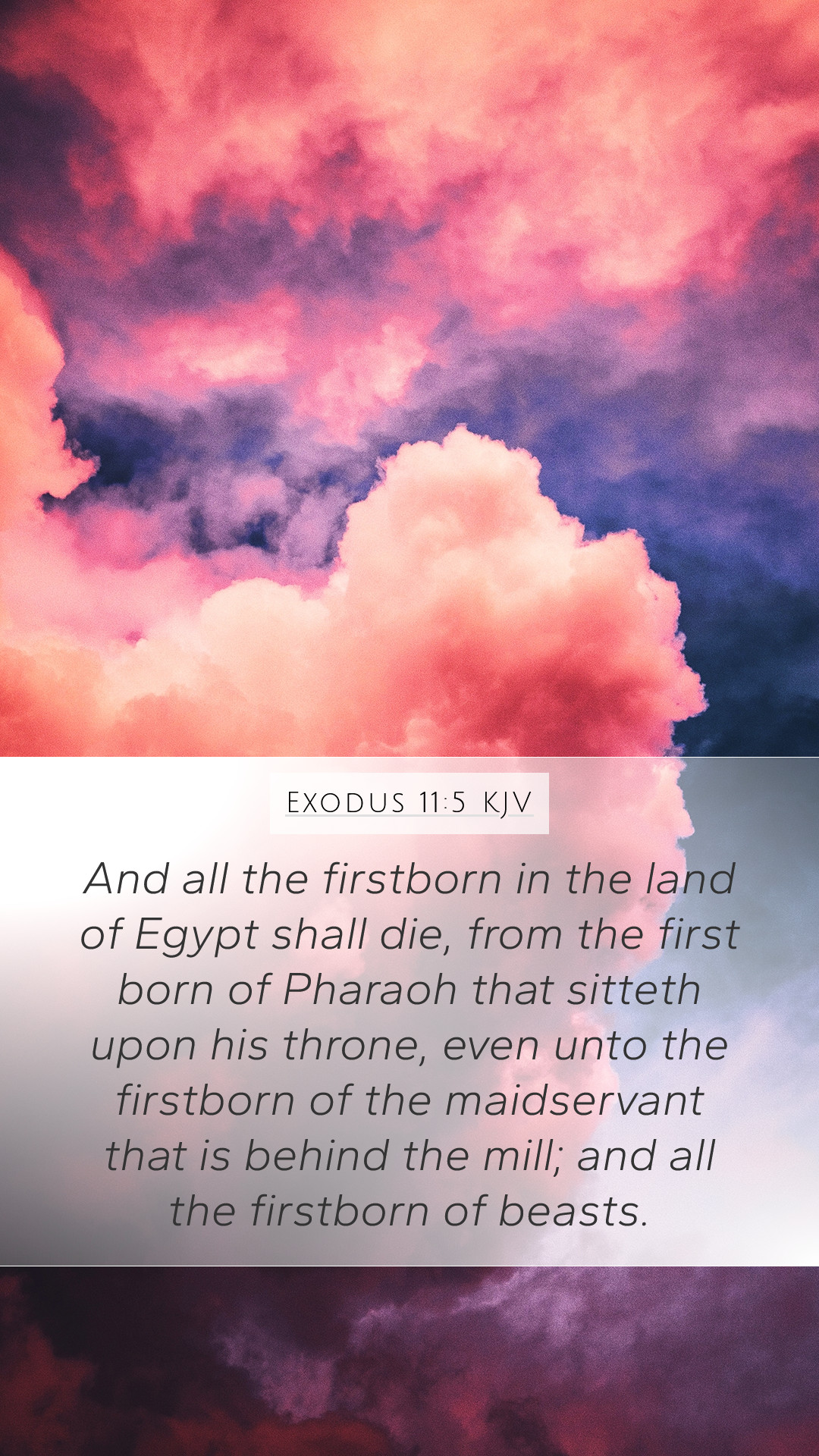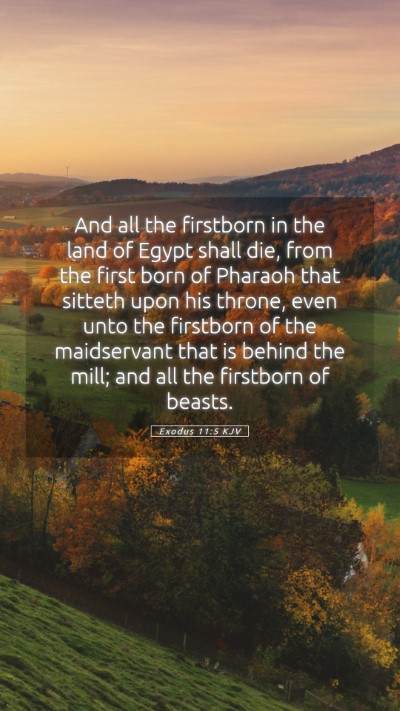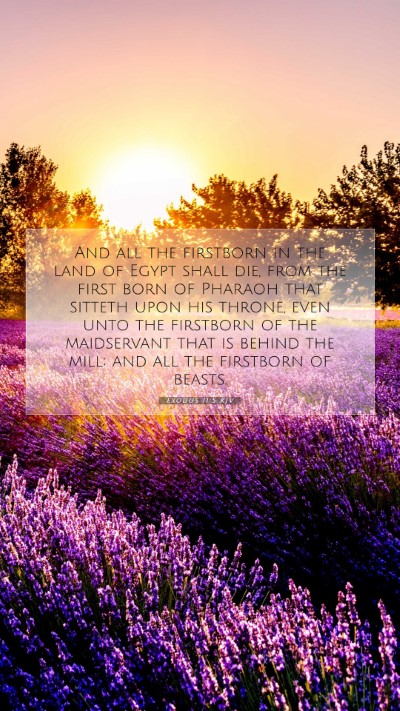Bible Verse Commentary: Exodus 11:5
Verse Reference: Exodus 11:5 - "And all the firstborn in the land of Egypt shall die, from the firstborn of Pharaoh that sitteth upon his throne, even unto the firstborn of the maidservant that is behind the mill; and all the firstborn of beasts."
Understanding the Context
This verse falls within the narrative of the final plague that God sent upon Egypt as a judgment against Pharaoh and the Egyptians for their oppression of the Israelites. It highlights the severity and seriousness of God's judgment.
Insights from Public Domain Commentaries
-
Matthew Henry's Commentary:
Henry elaborates on the gravity of God's message through Moses. He emphasizes that this plague was not merely a punishment but a demonstration of God’s sovereignty over all creation. The death of the firstborn is seen as a direct challenge to Pharaoh’s claims as a god-like figure, signifying that God holds the ultimate power over life and death.
-
Albert Barnes' Notes:
Barnes highlights that the mention of the firstborn has deep implications for Israel’s identity and history. The firstborn in Israel would be spared, contrasting the Egyptians’ fate, thus establishing a clear distinction between the two nations. This is a pivotal moment for the Israelites, as it signifies the lengths to which God will go to deliver His people from oppression.
-
Adam Clarke's Commentary:
Clarke discusses the cultural significance of the firstborn in ancient societies, where the firstborn often held a privileged status. He notes that this judgment was not only a physical death but also a symbolic breaking of Egypt’s strength and pride. Clarke encourages readers to reflect on God's justice and mercy in providing a means of escape for the Israelites through the Passover.
Analysis of Themes
-
Divine Judgment:
The verse illustrates the theme of divine judgment—God’s response to human sin and the oppression of His people. This judgment serves as a warning against pride and rebellion against God.
-
Deliverance:
Exodus 11:5 is pivotal to understanding the concept of deliverance in the Bible. It foreshadows the coming of the Passover, where the blood of the lamb was a sign for the Israelites to be saved from judgment.
-
Redemption:
The death of the firstborn signifies the cost of redemption and the eventual sacrifice that would be fulfilled in the New Testament through Jesus Christ.
Application for Modern Readers
Understanding Exodus 11:5 encourages readers to reflect on the nature of God's justice and mercy. In light of contemporary applications, this verse invites believers to:
- Recognize the seriousness of sin and its consequences.
- Appreciate the lengths God goes to bring about deliverance.
- Trust in God’s sovereignty even in times of judgment.
Cross References
- Exodus 3:19-20 - God's warning to Moses concerning Pharaoh's hardness of heart.
- Exodus 12:29-30 - The actual execution of the final plague.
- Romans 9:17 - The purpose of God’s judgment through Pharaoh.
Conclusion
In summary, Exodus 11:5 serves as a crucial moment of revelation regarding God’s judgment and mercy. Through public domain commentaries by Matthew Henry, Albert Barnes, and Adam Clarke, we observe a multifaceted understanding of this verse that contributes to our overall comprehension of Biblical narratives and God's character. It’s an invitation to deeper Bible verse analysis, urging readers to engage with Scripture meaningfully.


